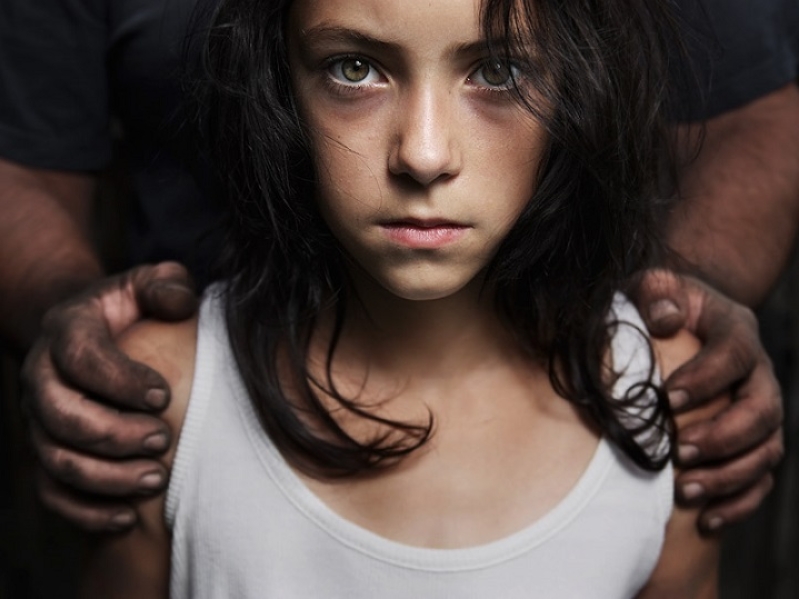
In observance of the U.N.'s world day against human trafficking, Pope Francis urged the international community to join the fight to end the epidemic, calling it "a form of modern slavery."
"Every year, thousands of men, women and children are innocent victims of labor exploitation, and sex and organ trafficking," Francis said during his traditional Sunday prayer.
"This is ugly. It is cruel. It is criminal," he added, urging the world to battle "this abhorrent plague, a form of modern slavery," and to pray that traffickers "change their hearts."
The International Labor Organization estimates 21 million people are victims globally of forced labor, including victims of human trafficking for labor and sexual exploitation. Five and a half million of these 21 million victims of human trafficking are children, according to UNICEF estimates.
However, Tiffany Atkinson, president of the anti-trafficking organization Freedom's Promise, said exact numbers are difficult to estimate.
"Statistics are very underreported," she told The Gospel Herald. "It's very difficult to track humans and the real scope of this issue."
Atkinson said that in many countries, human trafficking brings in more money than the drug industry. Worldwide, it's a $32 billion industry.
"There's a huge organization behind this that is reaping financial benefits," she said. "Globally, it's second only to drugs."
Children living in impoverished countries are particularly susceptible to human traffickers, Atkinson explained.
"In Cambodia, for example, you've got extreme poverty, lack of education - and the government isn't helping," she said. "These traffickers are smart about who they target. They're often females, and they'll go to families, build relationships, and offer things like education for the child, or a job to where the child can send back money. It's hard to believe, but parents will believe it. They will willingly send their child, boys and girls, young adults with these traffickers."
Once a child is in the traffickers hands, whether for labor or sex, they're pulled out of that community and smuggled into other countries, Atkinson said. Other times, young women will be looking for work and will accidentally get involved in the sex industry.
"These women end up being under the dictatorship of a madam, and they're forced to engage in prostitution," she said. "They might be able to send some money back to their families, but they feel they so ashamed of their work, they often disappear entirely."
The Christian community in particular should be concerned about human trafficking, Atkinson contended, as James 1:27 tells us to take care of the orphans and widows.
"Satan likes to keep this stuff in the dark," she said. "The devil doesn't want light exposed on these issues. As Christians, we understand the worth of a human because of our relationship with Jesus Christ. We're called to be witnesses."
To combat human trafficking, it's important to be aware of the issue, to cover victims in prayer, and to give financially to organizations fighting the global epidemic, she said.
Earlier this month, The United States House of Representatives passed the Frederick Douglass Trafficking Victims Prevention and Protection Reauthorization Act, providing approximately $500 million for federal government programs meant to battle human trafficking.
"Those efforts include training law enforcement officials to recognize and combat human trafficking, providing victims with assistance and investigating international trafficking rings," reported The Hill.
"The measure includes allocating $1 million over four years to train airport personnel, pilots and flight attendants how to spot human trafficking victims and report to law enforcement."
Two other anti-trafficking bills were also passed via voice vote by the House: "One of the measures, authored by Rep. Tim Walberg (R-Mich.), would require training of Labor Department personnel to detect human trafficking," continued The Hill.
"The other by Rep. Vicky Hartzler (R-Mo.) would let law enforcement use certain Justice Department grants to combat human trafficking."
President Donald Trump praised the passage of the three bills, saying in a statement that "the three bills the House of Representatives passed today are important steps forward."
"Since taking office, I have met with courageous survivors, non-profit groups, and faith leaders who are devoting tremendous energy to raising awareness about human trafficking," stated President Trump.
"I am hopeful that the Senate will take up and pass these three bills as soon as possible and I look forward to my continued work with the Congress on this important issue."






